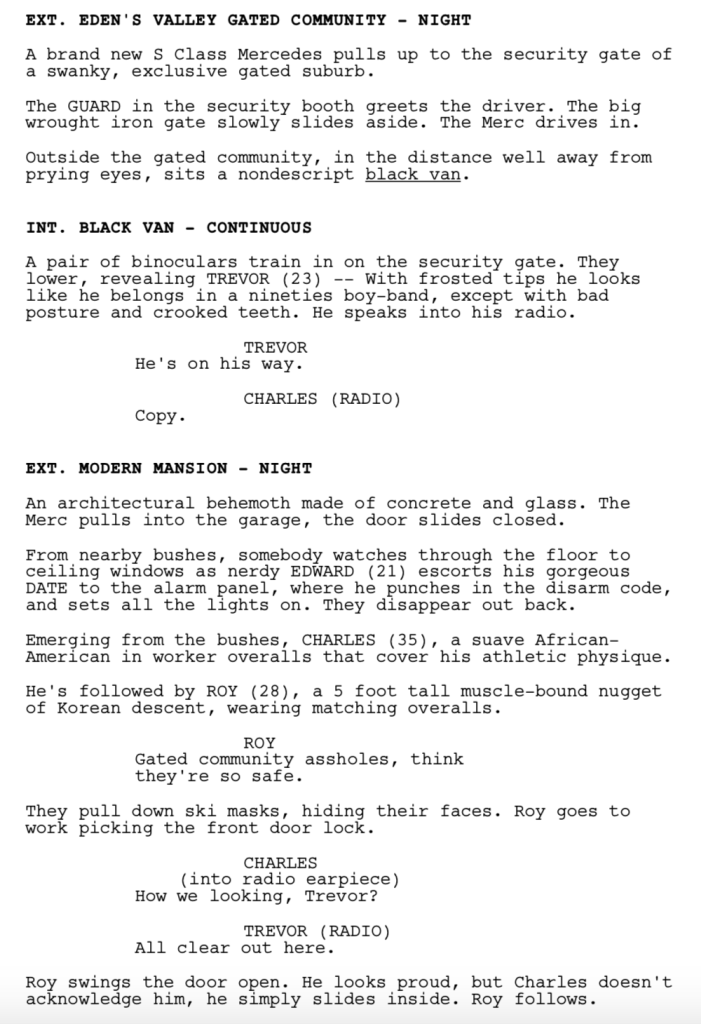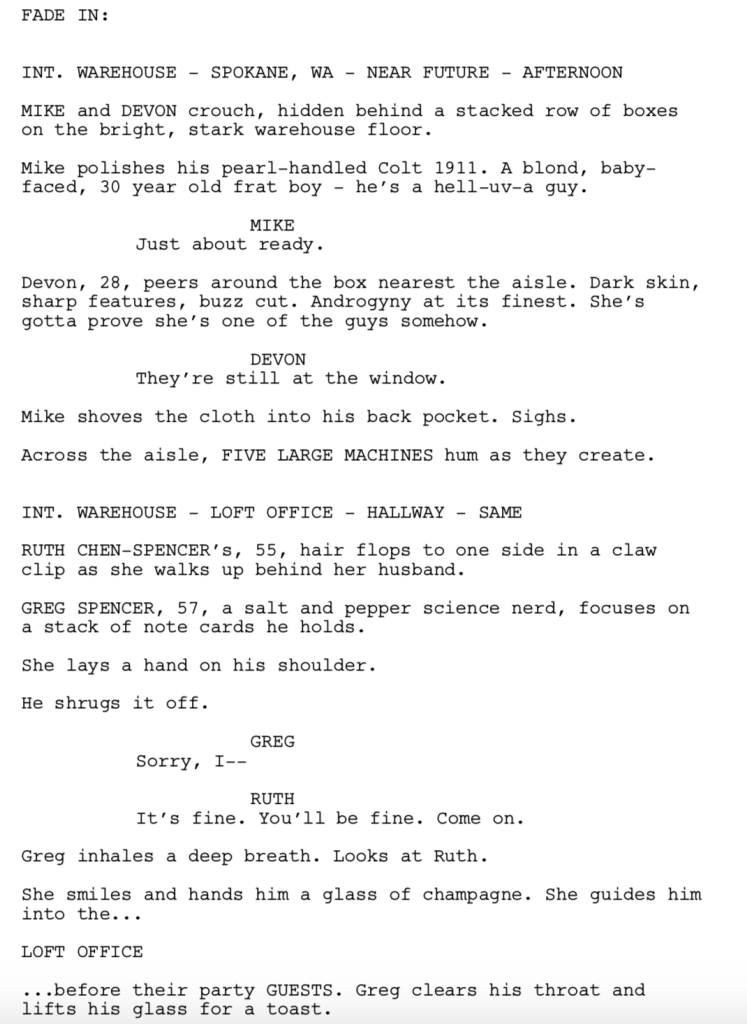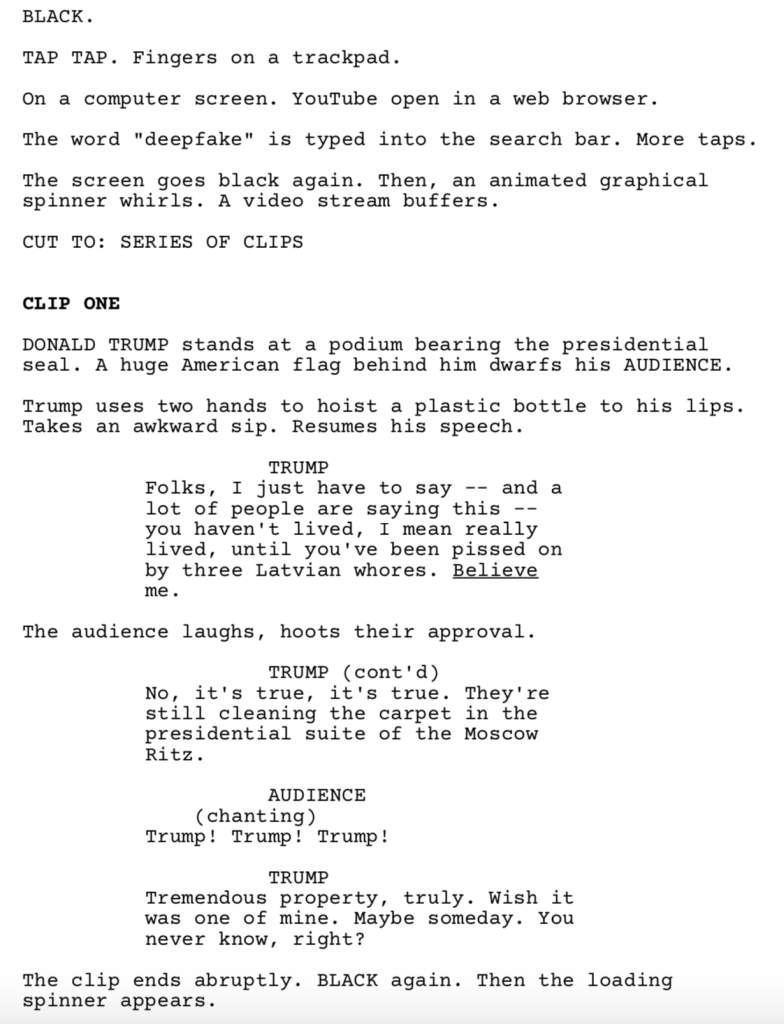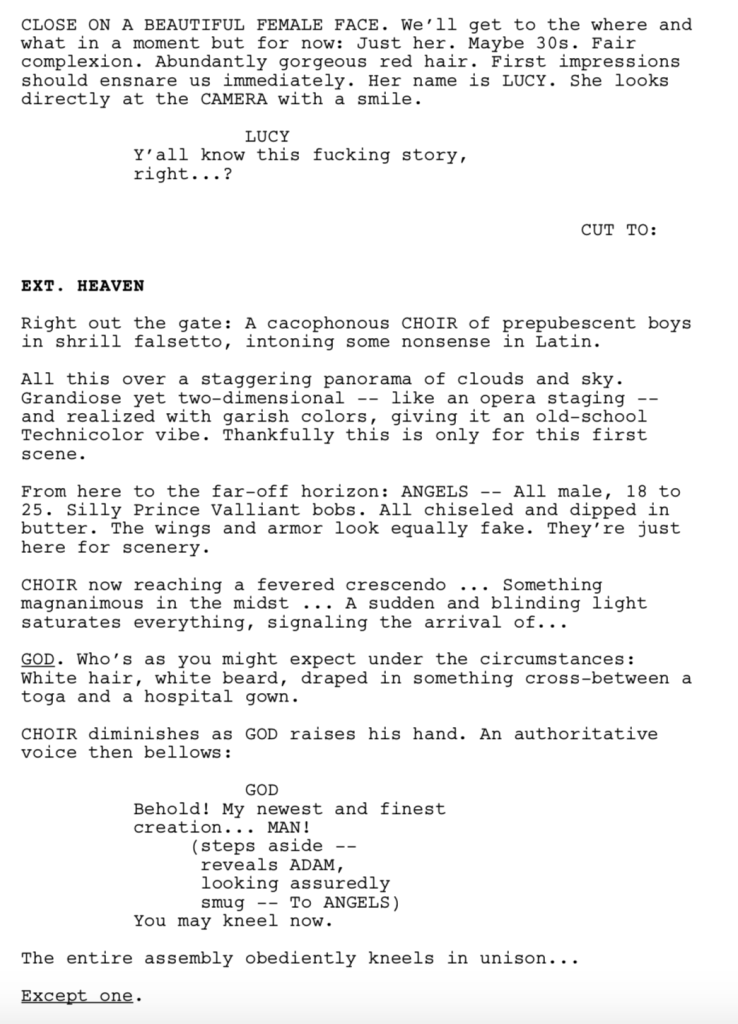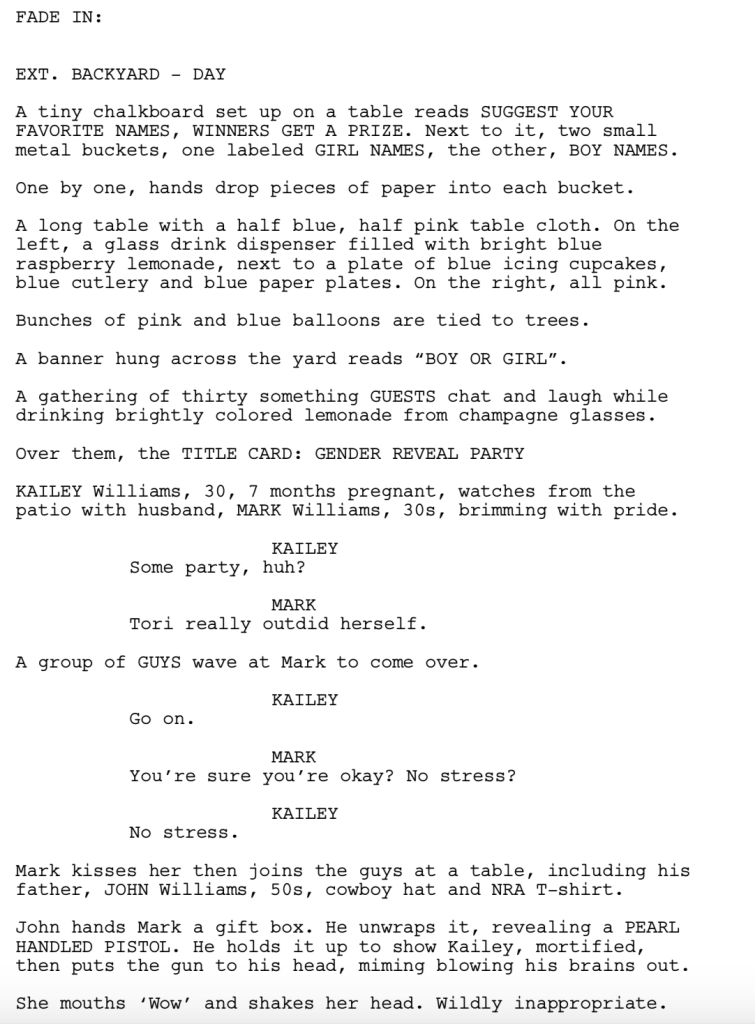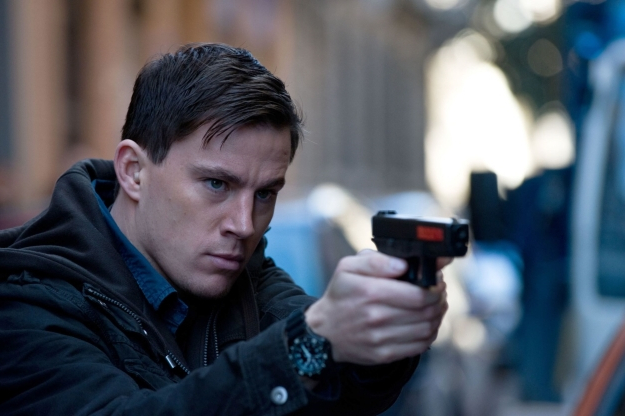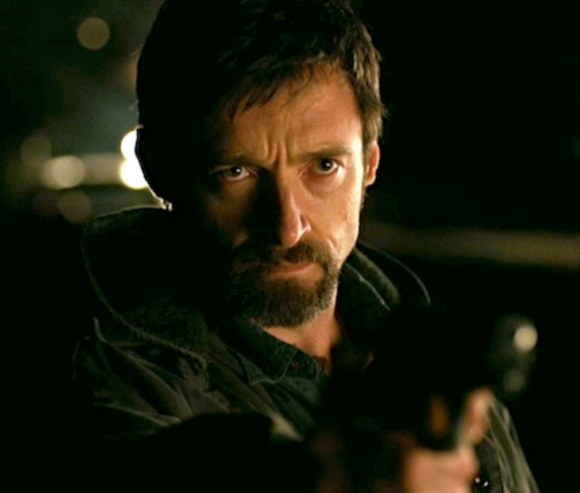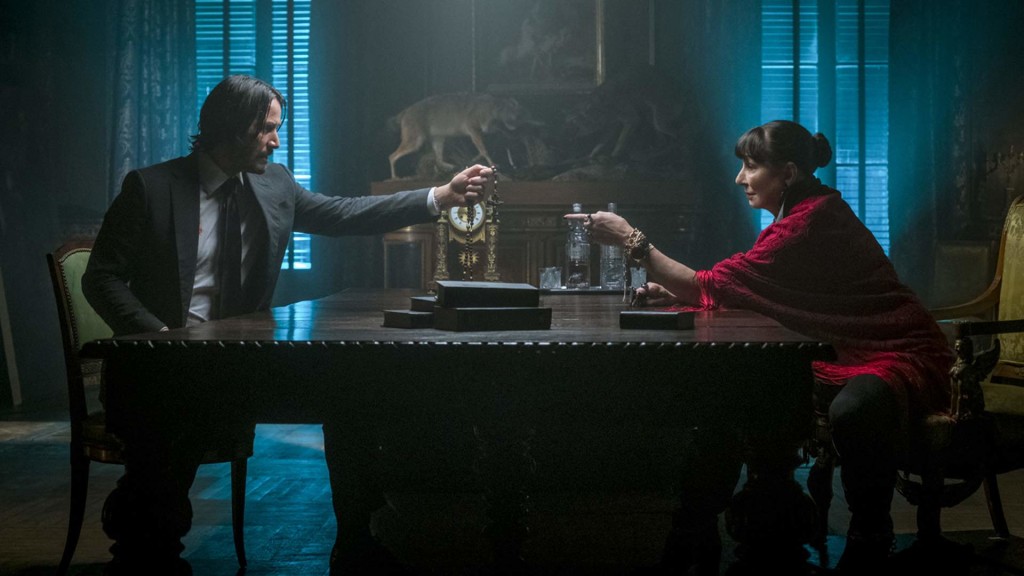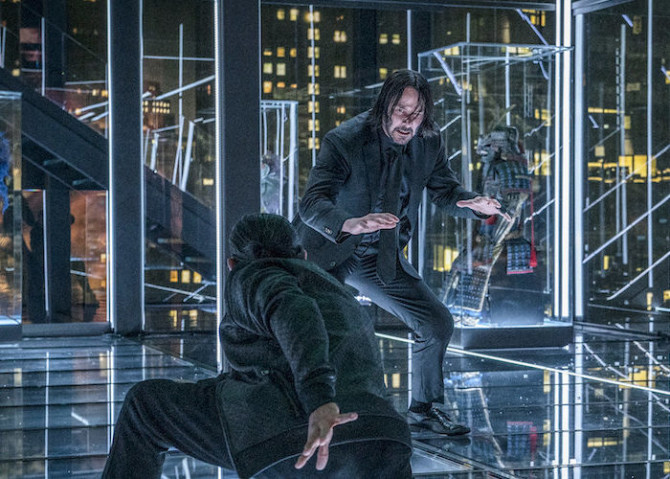My friends, it’s going to be a loooooong weekend. That’s right. It’s Memorial Day this Monday. Which means no Scriptshadow until TUESDAY!! How are you going to survive? No idea. But Tuesday I will be reviewing the Netflix movie, “The Perfection.” I heard it was totally bonkers and that you need to go into it knowing nothing. So that’s what I’m going to do. Oh, and you must watch it while eating grilled hot dogs if you want to participate in the discussion. That’s Scriptshadow law.
It’s going to be a fun weekend as I’ve included lots of familiar faces. Should make for a lively discussion.
If you haven’t played Amateur Showdown before, it’s a cut throat single weekend screenplay tournament where the scripts have been vetted from a pile of hundreds to be featured here, for your entertainment. It’s up to you to read as much of each script as you can, then vote for your favorite in the comments section. Whoever receives the most votes by Monday 11:59pm Pacific Time, gets a review next Friday. If you’d like to submit your own script to compete in a future Amateur Showdown, send a PDF of your script to carsonreeves3@gmail.com with the title, genre, logline, and why you think your script should get a shot.
Title: ROXBURY MANOR
Genre: Contained Thriller
Logline: When burglars invade her secluded country manor, a stubborn elderly widow must use her intimate knowledge of the building and her collection of ancient weaponry to defeat them.
Why You Should Read: This script is the result of some real world pain and the desire to understand the grieving process, combined with the commercially appealing idea of Home Alone with a stubborn elderly woman. I think there are a great many talented senior female actors who would love to have a little fun with a role like this. Of course I first need to make sure the script fulfills that potential, so I am turning it over to the SS faithful in the hope that they share their wisdom.
Title: Special Report
Genre: Sci Fi/Action
Logline: After discovering that a new teleportation technology has the power to rid the world of pollution and disease, an ambitious field reporter races to make the information public before the corrupt Secretary of Transportation can stop her.
Why You Should Read: What would happen if a transporter machine actually existed? How awesome would it be to be able to instantly go from one place to another? How would it affect our day to day lives? Air quality? Our economy? These are questions I would ask myself after getting a job that took me far away from my friends and family for years at a time. The answers came to me as a thrilling adventure story that takes place in the near future. Special Report leads you on a race around the world from the transporter’s origins while a corrupt government sect tries to prevent its knowledge from being released to the public. This combination of sci-fi and action became an exciting way for my protagonist to tell her story of the century. I would be extremely grateful for any notes/constructive criticism you would be willing to share with me. Happy Reading!!
Title: Deepfake
Genre: Thriller
Logline: A film school dropout with a talent for producing AI-generated “deepfake” videos is caught in a global conspiracy when he receives a disturbing commission from a mysterious online stranger.
Why You Should Read: If you haven’t yet seen deepfakes in the news, you will. This emerging AI-powered technology lets anyone with an average gaming PC churn out eerily lifelike fake videos of people. The social and political implications of this technology are huge, and it has politicians, generals, artists, and celebrities freaking out. Someone is going to make a movie about deepfakes. I hope it’s this one, and I think my background in tech makes for a story that’s plausible and well-researched while still being thrilling, unpredictable, and character-driven.
Title: The Profoundly Vulgar Gospel According to Lucy
Genre: Comedy, Fantasy
Logline: In the spirit of Monty Python, God’s wild and foul-mouthed daughter tells her absurdly comic story to a young priest as he wrestles with the idea that she’s actually Lucifer himself.
Why You Should Read: Look: I fully believe I’m going to catch a certain level of hell for this one. But I set out to write a story about fathers and daughters (on a cosmic-scale, mind you) with a tremendously complex and funny female lead role. What resulted is an epically-structured, dialogue-heavy, unabashedly sexual, politically incorrect, profanity-filled and perverse retelling of the whole of Western Civilization from its beginning to its end. Still on board? Well, have fun. I certainly did.
Title: We Are Not Safe Here
Genre: Horror Anthology
Logline: Nine short stories spanning all genres of horror, each following a traveler in search of sanctuary.
Why You Should Read: It’s time for a new FIRST on ScriptShadow: an anthology! WE ARE NOT SAFE HERE is a collection of nine unique horror shorts, each penned by a different writer from the Screenwriters Network Discord server. We teamed up, brainstormed, wrote, workshopped, and wove our stories together with seamless transitions similar to SOUTHBOUND and LOVE, DEATH & ROBOTS. The end result: nine terrifying tales of characters seeking safety from the horrors hot on their heels. Good luck to all the participants!
So you want to write a screenplay? First, you gotta find a great concept. Something that’s got some pop to it. Imagine pitching your idea to someone you’ve never met. Would the idea excite them? Be honest now. If the answer’s yes, you’re ready to move forward. The second most important thing is a big strong memorable main character. “Strong” is a relative term. But if I were you, I’d go with someone who’s active, who goes after what they want. Someone like that is going to keep your story moving.
Speaking of character, at least one key character in your story should arc. You can do this with your main character. But a lot of people prefer to do it with a secondary character. Either way, give a character a flaw that prevents them from being whole, from being happy, from living up to their full potential as a human being. They could be selfish, stubborn, introverted, self-destructive. Whatever feels organic to the story you’re telling. You will be placing this character in numerous situations that challenge this flaw. So if your character is Buckles Under Pressure Peter, put them in a lot of tough situations that show them buckling under pressure.
Next, you need to know where your script ends. You need to know the Death Star is going to blow up. Once you know where you end, you can start charting how to get there. Don’t worry. Writing is rewriting. So if you come up with a better ending later on, you can change it. Now it’s time to figure out your first act. Start off with a scene that introduces us to your hero. Think of your hero’s introductory scene as an interview with the audience. The most important thing you have to accomplish in this interview is prove why your hero is awesome. We’re about to spend 2 hours with this guy. If we think he’s lame after the scene, you’re doomed.
Next, you need to figure out your inciting incident (roughly page 15). This is the meteor that comes crashing down into your hero’s life and challenges them to go off on their journey. They won’t want to go yet. They’ll resist it for another 10 pages. Human beings don’t like change. They want to stay in their safe little bubble. But then on page 25, the end of Act 1, you’ll send them into the Matrix. Their adventure will begin.
Before we get to the second act, a word about scenes. Writing a good scene is like writing a good story. And here’s the best way to do it. Have one character (usually your hero) come into the scene wanting something. It could be to break up. It could be to get back together. It could be to get information. It could be to inspire the team with a half-time speech so that they come back and win the championship. Whatever it is, you want the other character, or characters, to resist. Whatever Character A is trying to get, Character B doesn’t want to give it to them. You may say, “Well why would the characters on the team not want to come back for their coach?” They may want to come back, but they don’t want to play the way the coach is telling them to play. Resistance is the easiest way to create CONFLICT, and conflict is the lifeblood of a good scene.
You’re now in the second act. This is where 99% of amateur screenwriters are exposed. So I’m going to make it easier for you. The second act is 50-60 pages long. We’re going to say 60 pages to keep the numbers clean. You will break your second act into four 15-page sequences. You will no longer think of it as a giant second act. You will think of it as four stories you have to tell. The easiest way to tell these stories is to have a character goal for each one. In The Mule, one of the sequences is Clint Eastwood proving he can deliver the drugs successfully. So there are several scenes of him delivering the drugs to the target point. It’s important that during these sequences, you provide obstacles that make the goals difficult. Clint delivering the drugs without a hitch is boring. A suspicious cop stopping him is what gives these small stories pop.
Sequences should never constrain you. Just because a sequence is about Clint delivering drugs doesn’t mean you can’t include a scene where he goes to his granddaughter’s wedding. As long as you can fit it into the sequence naturally, you can include it. And as long as the overall sequence stays focused on the drug delivery, you’re good.
Also, this formula is malleable. Since each movie is unique and contains its own set of challenges, you may have to adapt the structure. For example, I don’t remember exactly what happened in Endgame, but I know it was a long movie and probably had more than four sequences. And that some of those sequences were longer than 15 pages. Getting the band back together was a sequence. Figuring out time travel was a sequence. Putting the time machine together was a sequence. Going to get the stones in the past was a sequence. As long as you have characters trying to obtain an objective, you will always have a sequence to write.
Once you get to your script’s midpoint (after you’ve written the first 2 sequences of your second act), you want to introduce something that changes things around (the ‘Midpoint Shift’). This is primarily done to raise the stakes of the second half of the film, but it should also be an event that makes the second half of the film feel different from the first half. In The Force Awakens, the Midpoint Shift is when the First Order destroys an entire solar system (I’m not saying it was the greatest Midpoint Shift – but it’s an example of one).
As you move into your third and forth sequences of the second act, you will be doing the same thing you did in the first two, but with one key adjustment. You will create a growing sense that your hero is going to fail at his mission. The bad guys are getting closer. The bad guys are getting stronger. The obstacles are getting harder. The allies and friends are dying. (Kylo is killing Han). We should feel that with each passing scene, we are barreling towards certain failure. All of this will culminate in your hero failing. For good. Yes, they will either be dead or almost dead. This will signify the end of your second act, and occur somewhere between pages 85-90.
Don’t forget your flawed character. At some point in the 3rd and 4th sequences, your hero (or secondary character) will have a breakthrough in regards to their flaw. A mentor character teaches them something. Or they see someone with the same flaw suffer a terrible fate because of it. This will not be the thing that changes your hero. But it should give the reader a glimpse – however tiny – into the possibility that there’s POTENTIAL for change. In Star Wars, it’s an extremely subtle moment with Han Solo. Princess Leia snaps at him not to worry because he’ll have his money soon enough. The look on Han Solo’s face shows that, just for a moment, he sees himself for who he really is – a selfish scoundrel, and he doesn’t like it. Without this moment, it won’t make sense in the end when your character finally overcomes their flaw. Readers will complain that the change “came out of nowhere.” So include this scene!
You are now in your third act. I want you to think of your third act as similar to your second. But there will only be two sequences, each about 12 pages long, instead of the four sequences you wrote for Act 2. The first sequence of your third act is called the “Reborn Sequence.” Wesley may have been dead. But his buddies have saved him and convinced him to rescue Buttercup. It might take a couple of scenes to get your hero convinced he can take one more shot at this. But he’ll come around. He has to. He has no other choice. Once he’s ready to go, you have two scenes left in the sequence. “The Plan” – He and the team need a plan before they take on the villain! And “The Calm Before the Storm” – One last deep breath before going at it. This is often where the hero and the love interest (or best friend, or family member, or fellow soldier) share some deep final thoughts, which makes sense, since they probably aren’t getting out of this alive.
Before we get to our final battle, don’t forget about our flawed character! That character is going to complete their arc during the climax. This means you have to structure the battle in a way that challenges their flaw. So let’s say we’re still working with Buckles Under Pressure Peter. He’s our captain. The battle is going south quickly. They’re getting mauled in the air, on the ground, and in the sea. Everyone’s looking to him. What do we do next, Captain Peter? Because you’ve placed Peter in numerous pressure-filled situations throughout the script, giving him valuable experience, and because you included that one brief moment where he had that breakthrough, Peter will take a deep breath, look everyone in the eye, calmly step forward, and say, “Okay, everybody, pay attention. This is what we’re going to do.” And he comes up with an amazing plan to turn things around. By the way, if this is a secondary character who’s arcing, some writers like to place their “change” scene earlier. That way, they can keep the climax focused on the hero.
Our final sequence will be the big battle, the big game, the showdown with the bad guy, the attempt to win over the girl. The success of this scene will be determined by everything you’ve done up to this point. If your characters are great. If your story was engaging. If you created a proper sense of doubt and hopelessness as we moved towards our climax, you should, at the very least, write a good ending without even trying. To elevate your ending to something great, though, you need two things: 1) You need to surprise us with something we didn’t see coming. 2) You need to make it emotionally nuclear. Andy Dufresne escaping Shawshank was something no one saw coming. And Red getting out of prison years later and reuniting with his best friend was emotionally nuclear. “Didn’t see it coming” does not mean a “twist.” It can mean a twist. But you can give the audience something they weren’t expecting without a twist. I just don’t want everyone to think that the only way to write a great ending is with a twist.
Now go write a script!
Carson does feature screenplay consultations, TV Pilot Consultations, and logline consultations. Logline consultations go for $25 a piece or $40 for unlimited tweaking. You get a 1-10 rating, a 200-word evaluation, and a rewrite of the logline. If you’re interested in any sort of consultation package, e-mail Carsonreeves1@gmail.com with the subject line: CONSULTATION. Don’t start writing a script or sending a script out blind. Let Scriptshadow help you get it in shape first!
Genre: Crime
Premise: When a dirty Los Angeles cop’s partner is killed by a Korean gangster, he follows the gangster to Seoul to get revenge, teaming up with a Korean bodyguard-for-hire who has his own reasons to kill the target.
About: In what would have been a game-changing experiment, this 2007 project was set to be made in Korea. There would be two cops, one played by Channing Tatum, the other played by a Korean actor, and two movies would be edited, one with a focus on the Korean cop for the Korean market, and the other to focus on Channing Tatum’s cop for the American market. The script was close to ready, but just as they were about to shoot, the writer’s strike happened. Since then, the project never got up and running. Doug Jung is best known for having the near impossible task of turning what was once a good script, The God Particle, into what would eventually become Netflix’s, “The Cloverfield Paradox.”
Writer: Doug Jung
Details: 111 pages
It’s so hard to get a project to the finish line. If even one thing gets in the way, it could destroy all momentum. And if that momentum isn’t picked back up soon, the film may never see the light of day. People in high positions getting fired has been the harbinger of doom for thousands of projects throughout the years. Just look at Fox. Half their slate was wiped out when Disney took over. And that was just for the movies that were finished. An untold number of projects in development were wiped out as well.
But the event that doomed this 2007 project was the writer’s strike. Channing Tatum, who was the most desired actor in the world at the time, was ready to make his Departed. They were mere months away from shooting and then… writer’s strike. The project never found its footing again. The irony is that 2019 seems like the ideal time to make a project like this. Who knows? Maybe this project isn’t dead yet.
Ethan is a Los Angeles cop who knows a thing or two about our justice system. Mainly that they don’t deliver. So when Ethan charges in on a man who’s murdered a woman after doing unmentionable things to her, he takes that man to the top of the building and TOSSES HIM OFF IT. Haters can suck it.
Because internal affairs can’t prove he tossed the man off the roof, Ethan’s off to his next gravity experiment. It’ll be a little tougher this time since his partner and best friend, Vincent, has been asked to keep a closer eye on him. While investigating a murder, the two find themselves in the middle of a high profile Korean criminal underground meeting. During the meeting, a dangerous Korean man named Moon kills the high ranking “president” in the room (this is what the Koreans call their major crime bosses). When all hell breaks loose, Ethan watches in horror as Moon slits Vincent’s throat then flees back to his country, where he plans to make a play for a presidency.
Devastated, Ethan gets on a flight to Seoul to get his revenge. But the Korean police don’t want him here. They know what he’s capable of and tell him to go home. Ethan sneaks away and eventually teams up with Park, the disgraced bodyguard of the “president” Moon killed. With Park’s knowledge of Seoul, Ethan figures he’s got a shot of finding Moon. But they’re going to have to act fast. Moon is moving up the ladder quickly. It’s only a matter of time before he becomes so powerful, he’s untouchable.
I’m always leery of these gimmicky movies (we’ll have one main character for one country and another main character for another country!). It’s hard enough to get a story right as it is. Less than 20 movies a year are able to do that. So how are you going to write a script that’s able to alternate main characters depending on the edit?
But it occurred to me that it’s not as hard as it sounds. You just write two really good characters. That way, it won’t matter who you cut to. We’re going to want to spend time with either.
Another thing I’m always reluctant about is generic cops and robbers scripts. These two elements have been explored so extensively over the years, that it’s nearly impossible to find a fresh way into the genre. And when you don’t have anything fresh, all that’s left is men with guns. And men with guns isn’t interesting.
For this reason, I was ecstatic that the bulk of this story took place in Seoul. I know a few of you hate when I use this word, but the Korean mythology – by that I mean the world-building of the Korean underworld – was unique enough to make this stand out from your average cops and robbers flick. I liked, for example, learning about the “presidents,” which were basically the Korean versions of mafias. I liked learning about the code between the cops and the gangsters. Everything about this universe was different from your average American cops and robbers movie.
The script also helped me realize what was missing from another recent ‘men with guns’ movie, John Wick 3 – a personal reason for all the killing. In John Wick, there isn’t a single emotional component to what John is doing. He’s just trying to stay alive. That was a big reason why all of his kills felt so empty. But in this script, Ethan is clearly torn up by his partner’s murder. And it’s for that reason that we care so much about his objective. We were there when Moon killed his partner. So we’re not leaving until we see him do the same to Moon.
Where the script faltered was in the character of Park. Park had an interesting story himself in that the man he was tasked with protecting was killed on his watch. But Park is more of a gun-for-hire. He had no personal attachment to the president that was killed. This leaves his emotional journey hanging, and not nearly as interesting as Ethan’s.
Still, I enjoyed the fish-out-of-water angle of Ethan being in Korea and Park helping him understand that it’s different here. You can’t just do whatever you want. You’ve got to operate with a sense of honor and respect, something Ethan is terrible at. It was sort of like a serious version of Rush Hour. It had that same kind of dichotomy between the main characters but without all the silly jokes and Jackie Chan jumping on busses. If you’re coming for Van Danzens, this is not your movie.
Despite enjoying this script, it never reached the level of the movie it was inspired by, The Departed (which came out a year earlier), because it didn’t have any flashy characters. There was nobody who popped off the page. And you need that in a script like this because you don’t have the big flashy concept. You have to find your flash in other places. The Departed had Jack Nicholson. We needed a character like that here.
Don’t give up on “Untitled” though. We may see this script come to life yet.
[ ] What the hell did I just read?
[ ] wasn’t for me
[x] worth the read
[ ] impressive
[ ] genius
What I learned: “Men with guns” movies aren’t going to work on their own. You need an angle. What we’ve learned this week is that a unique mythology, whether made-up or based on a real place somewhere else in the world, can be that angle. With John Wick, it’s the “honor among assassins Continental” mythology. With this script, it’s the Korean crime world. Basically, if you’re not bringing us something new that we haven’t seen before, what incentive do we have to watch your movie?
Genre: TBD
Premise: After being falsely accused of murdering his business partner, a tech titan creates a humanoid version of himself to serve out his sentence to disastrous results.
About: This script finished with 7 votes on last year’s Black List.
Writer: Matt Fisch
Details: 99 pages
Today I felt like laughing. That’s the great thing about script-reading. Whatever you’re in the mood for, there’s a genre for it. It was a fun Monday. I had a nice dinner. I was ready to laugh. And so it was that I came across this logline on the Black List: “When bio-tech titan Van Danzen is falsely convicted of murdering his business partner, he sends his greatest creation – a spitting-image humanoid robot – to serve a life sentence in his place. However, the humanoid’s militarized programming sends him on a rampage to escape prison and hunt those responsible for his creator’s set-up and imprisonment.”
Does that not sound like a comedy to you? The main character’s name is “Van Danzen.” He’s created a spitting image humanoid robot of himself who he sends to prison. How is that not a comedy? Well, after reading the first twenty pages of Inhuman Nature and not laughing once, I realized that I was actually reading an action script, an action script about a human replica of a billionaire named Van Danzen that was taking itself seriously.
I suppose there was a time, many moons ago, when people would pay for a premise that didn’t make sense. Let us not forget that they made a movie called “Face Off” where people actually bought into the premise that Nicholas Cage and John Travolta had their faces switched. So I guess anything’s possible. But can this bizarre Face-Off meets The Terminator hybrid pull off a similar feat? Grab your humanoid replica and let’s the three of us find out together…
Van Danzen is serving 30 years for killing his business partner. The tech billionaire is escorted into a maximum security prison where he mad-dogs all of the prisoners he passes. But then we cut to a car outside the prison where inside we see… Van Danzen?? Yes, this is the real Van Danzen. The one in the prison is a humanoid replica that Van built to serve his sentence. Meanwhile, Real Van is taking his girlfriend who never talks, Quinn, and sneaking out of the country where he’s going to hide out and live the island life for the next 30 years.
Van’s plan is thrown into disarray, however, when Humanoid Van Danzen snaps and starts killing prison guards! He then marches out of the prison, avoids sniper fire, and goes on a revenge tour to take down the people who put him in prison. Even though it’s not… really… him… who was betrayed? First is the prosecutor, then the judge, and soon it’s an FBI agent, who just so happens to be working with the real Van, who’s currently in Canada (he escaped there by taking an underground tunnel).
The real target of Humanoid Van Danzen, however, is the president of the United States! Yeah. And what we learn is that the president is also a humanoid that Van created. And the president is responsible for killing Van’s partner to set Van up, who, incidentally, was also a humanoid. As was Van’s girlfriend, Quinn. Yup, also a humanoid. Van and the FBI agent must avoid a determined Humanoid Van, then stop him from killing the president of the United States or else… I don’t know. Maybe we all become humanoids.
I’m going to give you a peak behind the curtain as to certain red flags readers spot early that lessen their confidence in a screenplay.
The first is a billionaire protagonist. In a comedy, billionaires are great because you can play around with that extreme to create a lot of jokes. Brewster’s Millions comes to mind. But in any other genre, it’s a lazy device. It basically allows you, the writer, to do anything you want without much effort. Normally, creating the first artificially intelligent human replica would require hundreds of the best scientists and mathematicians and computer experts in the world. It would be a massive undertaking. Instead of having to explain how all that came together, a writer can just say, “Eh, he’s a billionaire so he’d figure it out.”
I know, I know. Iron Man is a billionaire. He’s the most popular character ever. But Iron Man is actually the reason this lazy device has made its way into so many stories. Back when Iron Man was created, that became a trendy story choice. Make your comic book hero really rich. And it worked because it was new and fresh. It’s no longer new or fresh.
Secondly, I saw this line on the first page: “The only car in the lot is a CALIFORNIA HIGHWAY PATROL Dodge Charger, decked out in white and black, an emperor penguin on wheels.”
There’s zero reason to include a try-hard visual description of an object every single person on the planet knows. Whenever I see this, I get worried because I know the writer is focusing on the wrong things. Giving a visual description of, say, someone’s apartment makes sense because everybody’s apartment is different. You can tell a lot about a person from how their apartment is decorated. If it’s clean or not. If it’s small or large. If the furniture is cheap or expensive. So if you want to use some fun visual descriptions, save them for moments like this. I know this seems like a small thing to criticize. But in the thousands of scripts that I’ve read, it is my experience that when I see this early on, it’s usually bad news going forward.
Finally, there were lots of exposition-heavy long monologues early on. Monologues are fine. A lot of movies begin with characters explaining things in voice over. Scorsese movies for example. But to spend huge chunk of dialogue after huge chunk of dialogue having reporters explain in excruciating detail that our character is a murderer and lost his court case and what is his life going to be like now that he’s in prison? Seasoned writers don’t do that. They know exposition is the screenwriting devil. They will sell an organ on ebay if it means they can cut a 10 line chunk of expository dialogue down to 6 lines.
All that stuff combined with the fact that this script sounded like a comedy and it wasn’t led me into the next 70 pages skeptical that it was going to be able to turn things around. So it wasn’t surprising when it didn’t. I didn’t even know what the movie was about for another 30 pages. I wasn’t clear who the main character was. You’d think it was Van. But he was so passive and wimpy. It was Humanoid Van who was the active one. He’s out there killing people and, eventually, as we learn, trying to kill the president. But he has zero personality. So we can’t really follow him as the protagonist. This created a sort of “hero limbo” where we were desperately looking for a strong character with a strong goal to follow. That never came.
I know there’s a commenter here who swears that a Black List script has never been written that is worse than an amateur script. He might want to read this script and reevaluate that stance. I’ll take that a step further. If you had handed me this script and Friday’s amateur script and I’d never heard of either, and you told me to read both and bet my life on which one made the Black List, I would’ve said Chris’s Amateur Friday script in a heartbeat. That script had problems but at least it had a voice. It had some vision. This feels like an entry in a UCLA screenwriting classroom contest. I don’t know how it got on the Black List.
[ ] What the hell did I just read?
[x] wasn’t for me
[ ] worth the read
[ ] impressive
[ ] genius
What I learned: Beware “set the table” dialogue. This is when you want a character to say something for the audience’s sake. So you have another character ask them the perfect question that allows them to do so. For example, if you need the audience to know that the president is bad, a “set the table” scenario might look like this.
John: But why wouldn’t the president listen to us?
Mary: The president was compromised back in Philadelphia when the Chinese operatives injected him with the complacency diode. We can’t trust him anymore.
You can sometimes get away with this if it’s one question and one answer. But if you have scenes where you’re trying to get a lot of information out to the audience and you’re doing this over and over again, it doesn’t sound like a natural conversation at all.
Genre: Action
Premise: John Wick is being hunted by every single assassin in the world. And John Wick on a horse.
About: John Wick didn’t just kill the 200 characters who came at him in Parabellum. He killed Avengers Endgame, dethroning the box office behemoth with a 57 million dollar opening, almost twice that of John Wick 2’s opening box office weekend.
Writers: Derek Kolstad and Shay Hatten and Chris Collins & Marc Abrams
Details: 130 minutes
I have to be careful with today’s review.
The John Wick franchise is one of the best underdog stories in cinema history. The first John Wick script was laughed at by Hollywood. It was about a retired assassin who went on a killing rampage because of a dog. It starred an over-the-hill former movie star who was in the process of joining Bruce Willis and Nicholas Cage in the direct-to-digital doldrums. The movie, a likely candidate for direct-to-digital itself, needed to have literally every single critic who saw it say it was awesome to get publicity. And even when the first film did well, it didn’t do well enough for a studio to think it was worthy of a wide-release sequel. Still, Lionsgate took a chance on a bigger sequel, and the box office results legitimized the franchise, ensuring that more sequels would be in the works. John Wick is the little engine that could. And a wonderful reminder that there are still popular projects that can be birthed from screenwriters’ imaginations.
With that said, here’s my beef. John Wick started out so good, I thought I was in the process of watching a classic. But then each fight scene became less interesting than the previous one, when it should’ve been the other way around.
If you haven’t seen the film, it continues where the last one left off. John Wick has killed an assassin inside the sacred confines of The Continental hotel, a huge no-no. It’s such a no-no, in fact, that John Wick becomes the number one bounty in the world, at 14 million dollars. Since it’s rare for a head to pay that much, every single assassin on the planet will be after him. I want you to remember that for later, as it’s a pivotal area the movie could’ve improved in.
Priority number 1 for John Wick is to get out of New York City, which isn’t easy. But he eventually gains passage to Casablanca of all places, where he reunites with an old assassin friend (Halle Berry and her dogs) and tries to convince some dude high up on this bonkers Wickian mythology ladder to get this price off his head. The guy tells him he’s got to meet some other guy who literally lives in the middle of the desert, who tells him if he wants this, he has to kill the head of the Continental, sending him right back to where he started. It’s here where Wick takes on a late-arriving villain who’s been dreaming his whole life of killing John Wick. Is it finally the end for the king of the double-tap?
Okay so look. John Wick has always been about two things. Wacky assassin mythology and fight choreography porn. You could legitimately argue that these are the only two things that exist in the franchise. However, you would also have to point out that it does both of them really well. The mythology, in particular, is so weird, that you can’t help but bask in it. I love these tatted up bounty order-taking nurses. I love how there are a dozen different sacred coins, all of which mean something unique to this assassin community. I love how every tenth person on the planet is an assassin waiting for John Wick to walk past them so he can start following him. I love the way-too-dramatic look on everybody’s faces when an order is called in to “deconsecrates” the Continental. I love that they gave the movie a title that three people in the world knew the definition of.
I absolutely loved John Wick killing a 7 foot man with a book, unofficially making the 300 year old author an accomplice. I loved John Wick using stable horses to kill assassins. I loved the “hallway of knives” fight. I even loved the motorcycle sword set piece, despite the fact that it felt like something we’ve seen before.
However, I didn’t like any of the fight scenes after that. I thought Halle Berry’s character was annoying – a classic case of a secondary character hating the main character for no other reason than to create conflict, not cause there was any actual organic reason. All of the dog choreography felt overtly staged, taking me out of the movie. And how many faceless bad guys does John Wick have to kill in a scene before it starts getting tiresome? The answer is 10. The movie thought the answer was 50.
Then Halle Berry just disappears, never to be heard from again. If they’re going to try that hard to spin off a new character, they might as well have admitted it. “I’ll see you again if the internet response is positive,” Berry should’ve left Wick with. Then Wick walks in a desert for no other reason than it looks cool to have a sharply dressed Keanu Reeves walk in a desert. This is where I started to lose faith in the film.
But what really bummed me out was that they went with beauty over ingenuity for the film’s climax. Having Wick fight three guys who I only found out afterwards were big action stars from another film in this glowing neon glass room that had zero reason to exist other than that it looked good on camera was disappointing. The whole reason I loved the library scene and the horse stable scene and the knife hallway scene is that Wick could use the unique environment to give us action scenarios we hadn’t seen before. The neon glass castle didn’t have any of that. And I suppose they could argue that they wanted the focus to be on the fight, not the gimmicky surroundings. But I didn’t have any idea who these rando guys were. And by that point, we’d seen John Wick punch and kick so many people, that any fight he was in now was going to look redundant.
The great thing about that library scene was how unique the opponent was. I figured, when they said that every assassin in the world was going to be after him, that we were going to get a couple of dozen unique characters like that, all of whom had different talents and fighting skills. Instead, they brought in every top Asian stunt man in the business and used them for Wick’s adversaries. I can’t figure out for the life of me why they didn’t give us more variety. I thought maybe they were saving the adjudicator (a tall short-haired woman) for a battle, which would’ve been cool. But nope. Nearly every bad guy he faced was similar.
And yet, I can’t get too mad at John Wick. If you love pure action, I don’t see how you can not love this movie. It’s only a tough watch for those who watch way too many movies like myself and who wouldn’t mind a little extra character development so we care more. Oh, and I love the fact that director Chad Stahelski and Keanu Reeves want to keep making John Wick movies til they die. I think that’s hilarious. In a world where snobby actors on hit shows and franchises are always ungratefully begging to get out of their contracts, it’s good to finally see two people who are like, “Nope, we’re good. We have no intention of stopping.”
But Reeves and Stahelski will have to watch out. If they get even a little bit lazy, this franchise could fall apart. Bring us whatever inspired the first half of John Wick 3 for future installments and I’ll happily make another reservation at the Continental.
[ ] What the hell did I just watch?
[ ] wasn’t for me
[x] worth the price of admission
[ ] impressive
[ ] genius
What I learned: A common screenwriting mistake is to get hung up on what you’re going to do in a scene and not be open to better ideas. John Wick 3 made a crucial mistake in one of its early scenes. John must go to an underground doctor to get a shoulder wound sewed up. The problem is, he’s only got 5 minutes before the bounty begins. The writers choose to use the scene to set up some plot. The doctor, an older Asian man, isn’t allowed to work on John once the bounty begins. So it’s a race against time to sew him up. Afterwards, they discuss what his plan is, which sets up the next sequence. — What they should’ve done instead is have the doctor work on him, giving John everything he’s got, cutting back and forth from the clock, time ticking down, time ticking down, time ticking down, and then, the SECOND we hit the top of the hour, the doctor should’ve switched from helper to killer, grabbing available weapons (which would’ve been fun in a doctor’s office) and trying to kill John to get the bounty. I think they were so locked in on making this an exposition scene that they didn’t see an obvious awesome scenario.


